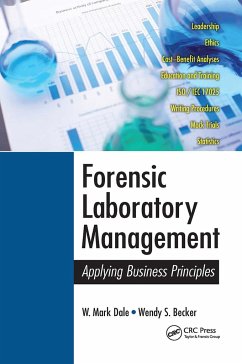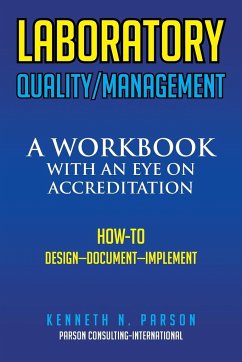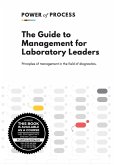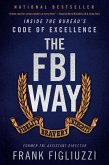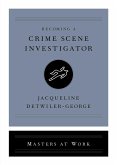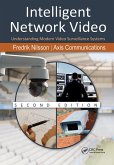- Broschiertes Buch
- Merkliste
- Auf die Merkliste
- Bewerten Bewerten
- Teilen
- Produkt teilen
- Produkterinnerung
- Produkterinnerung
Obtaining proper resources to provide quality and timely forensic services is frequently a challenge for forensic managers, who are often promoted from casework duties and must now learn a whole new set of leadership skills. This text provides laboratory managers with business tools that apply the best science to the best evidence in a ma
Andere Kunden interessierten sich auch für
![LABORATORY QUALITY/MANAGEMENT LABORATORY QUALITY/MANAGEMENT]() Kenneth N. ParsonLABORATORY QUALITY/MANAGEMENT57,99 €
Kenneth N. ParsonLABORATORY QUALITY/MANAGEMENT57,99 €![The Guide to Management For Laboratory Leaders The Guide to Management For Laboratory Leaders]() The Guide to Management For Laboratory Leaders100,99 €
The Guide to Management For Laboratory Leaders100,99 €![The FBI Way The FBI Way]() Frank FigliuzziThe FBI Way16,99 €
Frank FigliuzziThe FBI Way16,99 €![Boko Haram Boko Haram]() Ona EkhomuBoko Haram65,99 €
Ona EkhomuBoko Haram65,99 €![Measuring Corruption Measuring Corruption]() Arthur ShacklockMeasuring Corruption68,99 €
Arthur ShacklockMeasuring Corruption68,99 €![Becoming a Crime Scene Investigator Becoming a Crime Scene Investigator]() Jacqueline Detwiler-GeorgeBecoming a Crime Scene Investigator14,99 €
Jacqueline Detwiler-GeorgeBecoming a Crime Scene Investigator14,99 €![Intelligent Network Video Intelligent Network Video]() Fredrik NilssonIntelligent Network Video114,99 €
Fredrik NilssonIntelligent Network Video114,99 €-
-
-
Obtaining proper resources to provide quality and timely forensic services is frequently a challenge for forensic managers, who are often promoted from casework duties and must now learn a whole new set of leadership skills. This text provides laboratory managers with business tools that apply the best science to the best evidence in a ma
Hinweis: Dieser Artikel kann nur an eine deutsche Lieferadresse ausgeliefert werden.
Hinweis: Dieser Artikel kann nur an eine deutsche Lieferadresse ausgeliefert werden.
Produktdetails
- Produktdetails
- Verlag: Taylor & Francis
- Seitenzahl: 363
- Erscheinungstermin: 31. März 2021
- Englisch
- Abmessung: 234mm x 156mm x 19mm
- Gewicht: 508g
- ISBN-13: 9780367778927
- ISBN-10: 0367778920
- Artikelnr.: 61211664
- Herstellerkennzeichnung
- Libri GmbH
- Europaallee 1
- 36244 Bad Hersfeld
- gpsr@libri.de
- Verlag: Taylor & Francis
- Seitenzahl: 363
- Erscheinungstermin: 31. März 2021
- Englisch
- Abmessung: 234mm x 156mm x 19mm
- Gewicht: 508g
- ISBN-13: 9780367778927
- ISBN-10: 0367778920
- Artikelnr.: 61211664
- Herstellerkennzeichnung
- Libri GmbH
- Europaallee 1
- 36244 Bad Hersfeld
- gpsr@libri.de
W. Mark Dale is co-principal of Becker-Dale Consulting and most recently the former program manager for Forensic Education and Training at the U.S. Army Criminal Investigation Laboratory (USACIL). Previously, Dale was the director of the Northeast Regional Forensics Institute (NERFI) at the University at Albany, State University of New York, providing education primarily in forensics biology. Before his position at NERFI, he was the director (inspector in charge) of the New York State Police Laboratory System, Washington State Laboratory System, and the New York City Police Department Laboratory. Dale has also been the president of the American Society of Crime Laboratory Directors (emeritus member), chairman of the New York State Crime Laboratory Advisory Committee, and member of the New York State Commission on Forensic Science. Dale is also an ASCLD/LAB Legacy and International ISO/IEC 17025 trained auditor, ASQ Green Belt Six Sigma certified, and has participated in many ASCLD/LAB Legacy inspections. Dale has coauthored several forensic science management publications with Dr. Wendy Becker. Wendy S. Becker is assistant to the associate provost and graduate dean and professor of management at Shippensburg University. She teaches in undergraduate, master's, Ph.D., and executive programs in the United States, Austria, Portugal, Spain, and the United Kingdom. Becker received the 2011 Research Excellence Award from the Academy of Human Resource Development. Her research appears in Organizational Research Methods, Academy of Management Learning and Education, Organizational Dynamics, People and Strategy, Research in Organizational Behavior, Human Resource Development Review, Organization Management Journal, Team Performance Management, and Personnel Psychology, among others. Becker earned her Ph.D. in industrial-organizational psychology from Pennsylvania State University. Previously, she was editor of the Industrial-Organizational Psychologist.
Leadership in Forensic Science Laboratories. Origins and Rationale.
Description: National Leadership Challenges. Risks, Problems, Barriers:
Leadership Challenges in the Lab. Identifying Leadership Challenges:
Insight from Forensic Leaders. Behavioral Costing of Human Resources.
Lessons Learned and Recommendations: Measures of Efficiency and
Effectiveness. Forensic Laboratory Key Business Metrics and Cost-Benefit
Analyses. Laboratory Management Performance Model. Law Enforcement
Requirements. Costs. Capability. Cost: Efficiency and Effectiveness.
Performance. Benchmarks for Best Practices. Basics of Cost-Benefit
Analyses. Laboratory Excellence and Ethics: An Essential Association.
Douglas Lucas. Why Is Ethical Conduct Important to Forensic Laboratory
Management and Staff?. Ethics: What Are They?. Codes of Ethics: What Are
They? Who Needs Them?. Examples of Some Ethical Problems. Why Do People Do
Such Things?. Some Ethical Challenges and Dilemmas. Forensic Training,
Education, and Institutes. Forensic Science Manager Job Requirements.
Identifying the Need for Education, Training, and Professional Development.
Laboratory Management Performance Model Professional Development Costs.
Solution: Academic Institutes for Forensic Science. Advice for Students
Considering a Forensic Career. Curricula. Dedicated Facilities. Two Student
Cameos. The Capstone: Testimony. Major Academic and Institute Outcomes.
Testimony. ISO Accreditation Implementation: A Framework to Implement a
Quality Service. Harold Peel and Murray Malcolm. Background: International
Organization for Standardization (ISO) and Accrediting Bodies. Why Consider
Accreditation? Advantages and Some Considerations. Terminology. ISO/IEC
17025 (2005): Outline and Comment. Section 4. Preparation and
Implementation. Writing Policies and Procedures. Lexicon. Scientific
Procedure versus Administrative Procedure. Instructions on How to Develop
Procedures. Index.
Description: National Leadership Challenges. Risks, Problems, Barriers:
Leadership Challenges in the Lab. Identifying Leadership Challenges:
Insight from Forensic Leaders. Behavioral Costing of Human Resources.
Lessons Learned and Recommendations: Measures of Efficiency and
Effectiveness. Forensic Laboratory Key Business Metrics and Cost-Benefit
Analyses. Laboratory Management Performance Model. Law Enforcement
Requirements. Costs. Capability. Cost: Efficiency and Effectiveness.
Performance. Benchmarks for Best Practices. Basics of Cost-Benefit
Analyses. Laboratory Excellence and Ethics: An Essential Association.
Douglas Lucas. Why Is Ethical Conduct Important to Forensic Laboratory
Management and Staff?. Ethics: What Are They?. Codes of Ethics: What Are
They? Who Needs Them?. Examples of Some Ethical Problems. Why Do People Do
Such Things?. Some Ethical Challenges and Dilemmas. Forensic Training,
Education, and Institutes. Forensic Science Manager Job Requirements.
Identifying the Need for Education, Training, and Professional Development.
Laboratory Management Performance Model Professional Development Costs.
Solution: Academic Institutes for Forensic Science. Advice for Students
Considering a Forensic Career. Curricula. Dedicated Facilities. Two Student
Cameos. The Capstone: Testimony. Major Academic and Institute Outcomes.
Testimony. ISO Accreditation Implementation: A Framework to Implement a
Quality Service. Harold Peel and Murray Malcolm. Background: International
Organization for Standardization (ISO) and Accrediting Bodies. Why Consider
Accreditation? Advantages and Some Considerations. Terminology. ISO/IEC
17025 (2005): Outline and Comment. Section 4. Preparation and
Implementation. Writing Policies and Procedures. Lexicon. Scientific
Procedure versus Administrative Procedure. Instructions on How to Develop
Procedures. Index.
Leadership in Forensic Science Laboratories. Origins and Rationale.
Description: National Leadership Challenges. Risks, Problems, Barriers:
Leadership Challenges in the Lab. Identifying Leadership Challenges:
Insight from Forensic Leaders. Behavioral Costing of Human Resources.
Lessons Learned and Recommendations: Measures of Efficiency and
Effectiveness. Forensic Laboratory Key Business Metrics and Cost-Benefit
Analyses. Laboratory Management Performance Model. Law Enforcement
Requirements. Costs. Capability. Cost: Efficiency and Effectiveness.
Performance. Benchmarks for Best Practices. Basics of Cost-Benefit
Analyses. Laboratory Excellence and Ethics: An Essential Association.
Douglas Lucas. Why Is Ethical Conduct Important to Forensic Laboratory
Management and Staff?. Ethics: What Are They?. Codes of Ethics: What Are
They? Who Needs Them?. Examples of Some Ethical Problems. Why Do People Do
Such Things?. Some Ethical Challenges and Dilemmas. Forensic Training,
Education, and Institutes. Forensic Science Manager Job Requirements.
Identifying the Need for Education, Training, and Professional Development.
Laboratory Management Performance Model Professional Development Costs.
Solution: Academic Institutes for Forensic Science. Advice for Students
Considering a Forensic Career. Curricula. Dedicated Facilities. Two Student
Cameos. The Capstone: Testimony. Major Academic and Institute Outcomes.
Testimony. ISO Accreditation Implementation: A Framework to Implement a
Quality Service. Harold Peel and Murray Malcolm. Background: International
Organization for Standardization (ISO) and Accrediting Bodies. Why Consider
Accreditation? Advantages and Some Considerations. Terminology. ISO/IEC
17025 (2005): Outline and Comment. Section 4. Preparation and
Implementation. Writing Policies and Procedures. Lexicon. Scientific
Procedure versus Administrative Procedure. Instructions on How to Develop
Procedures. Index.
Description: National Leadership Challenges. Risks, Problems, Barriers:
Leadership Challenges in the Lab. Identifying Leadership Challenges:
Insight from Forensic Leaders. Behavioral Costing of Human Resources.
Lessons Learned and Recommendations: Measures of Efficiency and
Effectiveness. Forensic Laboratory Key Business Metrics and Cost-Benefit
Analyses. Laboratory Management Performance Model. Law Enforcement
Requirements. Costs. Capability. Cost: Efficiency and Effectiveness.
Performance. Benchmarks for Best Practices. Basics of Cost-Benefit
Analyses. Laboratory Excellence and Ethics: An Essential Association.
Douglas Lucas. Why Is Ethical Conduct Important to Forensic Laboratory
Management and Staff?. Ethics: What Are They?. Codes of Ethics: What Are
They? Who Needs Them?. Examples of Some Ethical Problems. Why Do People Do
Such Things?. Some Ethical Challenges and Dilemmas. Forensic Training,
Education, and Institutes. Forensic Science Manager Job Requirements.
Identifying the Need for Education, Training, and Professional Development.
Laboratory Management Performance Model Professional Development Costs.
Solution: Academic Institutes for Forensic Science. Advice for Students
Considering a Forensic Career. Curricula. Dedicated Facilities. Two Student
Cameos. The Capstone: Testimony. Major Academic and Institute Outcomes.
Testimony. ISO Accreditation Implementation: A Framework to Implement a
Quality Service. Harold Peel and Murray Malcolm. Background: International
Organization for Standardization (ISO) and Accrediting Bodies. Why Consider
Accreditation? Advantages and Some Considerations. Terminology. ISO/IEC
17025 (2005): Outline and Comment. Section 4. Preparation and
Implementation. Writing Policies and Procedures. Lexicon. Scientific
Procedure versus Administrative Procedure. Instructions on How to Develop
Procedures. Index.

